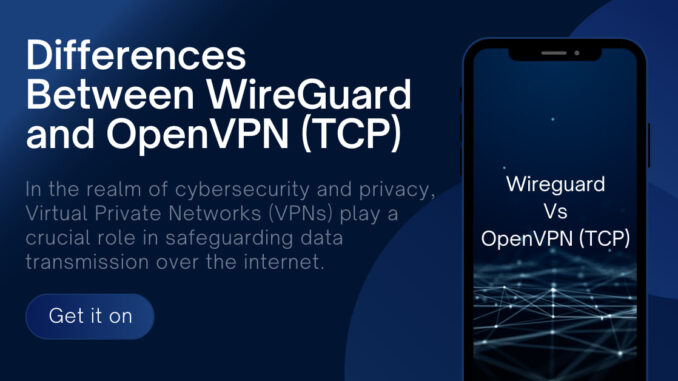In the realm of cybersecurity and privacy, Virtual Private Networks (VPNs) play a crucial role in safeguarding data transmission over the internet. Among the myriad of VPN protocols available, WireGuard and OpenVPN (TCP) stand out as popular choices, each with its own set of features and advantages. In this blog, we’ll delve into the differences between WireGuard and OpenVPN (TCP), helping you understand which might be the better option for your specific needs.
1. Introduction to WireGuard and OpenVPN (TCP)
WireGuard:
- Overview: WireGuard is a relatively new VPN protocol known for its simplicity, efficiency, and modern cryptographic design.
- Developer: Jason A. Donenfeld created WireGuard as an alternative to traditional VPN protocols, aiming for speed, security, and streamlined code.
- Advantages:
- Faster: WireGuard outperforms older protocols.
- Leaner: Its minimalistic approach simplifies deployment and maintenance.
OpenVPN (TCP):
- Background: OpenVPN has been around for over two decades and is widely used.
- Robustness: It’s an open-source protocol with a strong reputation for reliability and versatility.
- Modes: OpenVPN offers both TCP (Transmission Control Protocol) and UDP (User Datagram Protocol) modes, allowing users to configure their connections.
2. Performance and Efficiency
WireGuard:
- Speed: WireGuard excels in performance due to modern cryptographic techniques and a lean codebase.
- Resource Usage: It uses 15% less data compared to OpenVPN.
- Smooth Transitions: WireGuard handles network transitions efficiently.
OpenVPN (TCP):
- Reliability: While OpenVPN is reliable, its TCP mode tends to be slower and less efficient than WireGuard.
- Latency: TCP prioritizes data reliability over speed, which can lead to increased latency, especially over long distances or unstable networks.
3. Security and Auditability
- WireGuard is newer but well-received. Its simplicity makes it easier to audit.
- OpenVPN has a proven track record and has undergone independent audits.
4. Conclusion
- Choose Wisely: Consider your priorities—speed, reliability, or ease of deployment—when selecting between WireGuard and OpenVPN (TCP). Both have their merits, so test them out to find the best fit for your needs! 🛡️🔒
